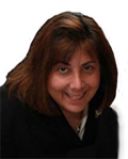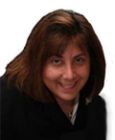
This is going to sound like the beginning of a really bad therapy joke, but bear with me. How do you tell the difference between a person who says certain sounds and sights drive him/her crazy and a person like me, who is literally driven crazy by certain sounds and sights?
The lack of medically acceptable criteria for diagnosing misophonia is the crux of the problem. It makes science and medical types nervous. It makes them accuse us of trying to turn a personality quirk into a full-fledged disorder.
Neurophysiologist Pawel Jastreboff was the first person to realize that we should be taken seriously. In the 1990’s, Jastreboff, a Polish émigré, was doing pioneering research on tinnitus treatment at the University of Maryland, when he noticed an interesting thing--many of his tinnitus research subjects were also complaining of “discomfort caused by sound.”
By 2000, now affiliated with Emory University, Dr. Jastreboff had seen over 2,000 tinnitus patients, and found that about 60 percent of them reacted negatively to what he called “sound with a specific pattern and meaning to a given patient. (e.g. eating sounds, the sound of certain people’s voices, and repetitive clicking sounds.)”
In 2001, Dr. Jastreboff got together with a Greek and Latin scholar from the UK and coined a name for this medical phenomenon—misophonia—from the Greek “miso”, hatred, and “phonia”, sound.
The term first appeared in a peer-reviewed journal in 2002, in which Dr. Jastreboff noted that misophonia, unlike hyperacusis, another decreased sound tolerance disorder, is “ less about the physical characteristics of a sound (loudness) than the patient's previous evaluation and recollection of the sound, the patient's psychological profile and the context in which the sound is presented.”
Today, Dr. Jastreboff continues to run the Emory Tinnitus and Hyperacusis Center and is a professor of Otolaryngology at Emory University School of Medicine, where he trains residents in using Tinnitus Retraining Therapy (TRT) and continues to research misophonia.
“I am currently developing a patient questionnaire that I plan to submit for peer review as a medically acceptable tool to help diagnose misophonia,” he said via email. Dr. Jastreboff said the questions will allow clinicians to compare the sounds that evoke negative reactions and the presence and strength of these reactions to the sounds that do not evoke negative reactions.
Like the handful of neuroscientists acquainted with misophonia, Jastreboff believes that the condition can ultimately be traced back to abnormal connections between neuronal networks in the brain. “There are no advanced brain scans that can corroborate this right now, but there are scans that can show the brain’s reaction to offensive versus neutral sounds,” he said. (More on this next week)
He also maintained that although there are no professionals specifically trained in diagnosing misophonia today, qualified audiologists and ear, nose & throat doctors can do so.
I asked him which medical professional he believed would be making the diagnosis of misophonia ten years from now. “I do not know, he said, “You would need a diagnosis from someone who understands the brain and doesn’t only work on a specific sensory system.”
With such a diagnosis, I am convinced that misophonia will get its full due.

